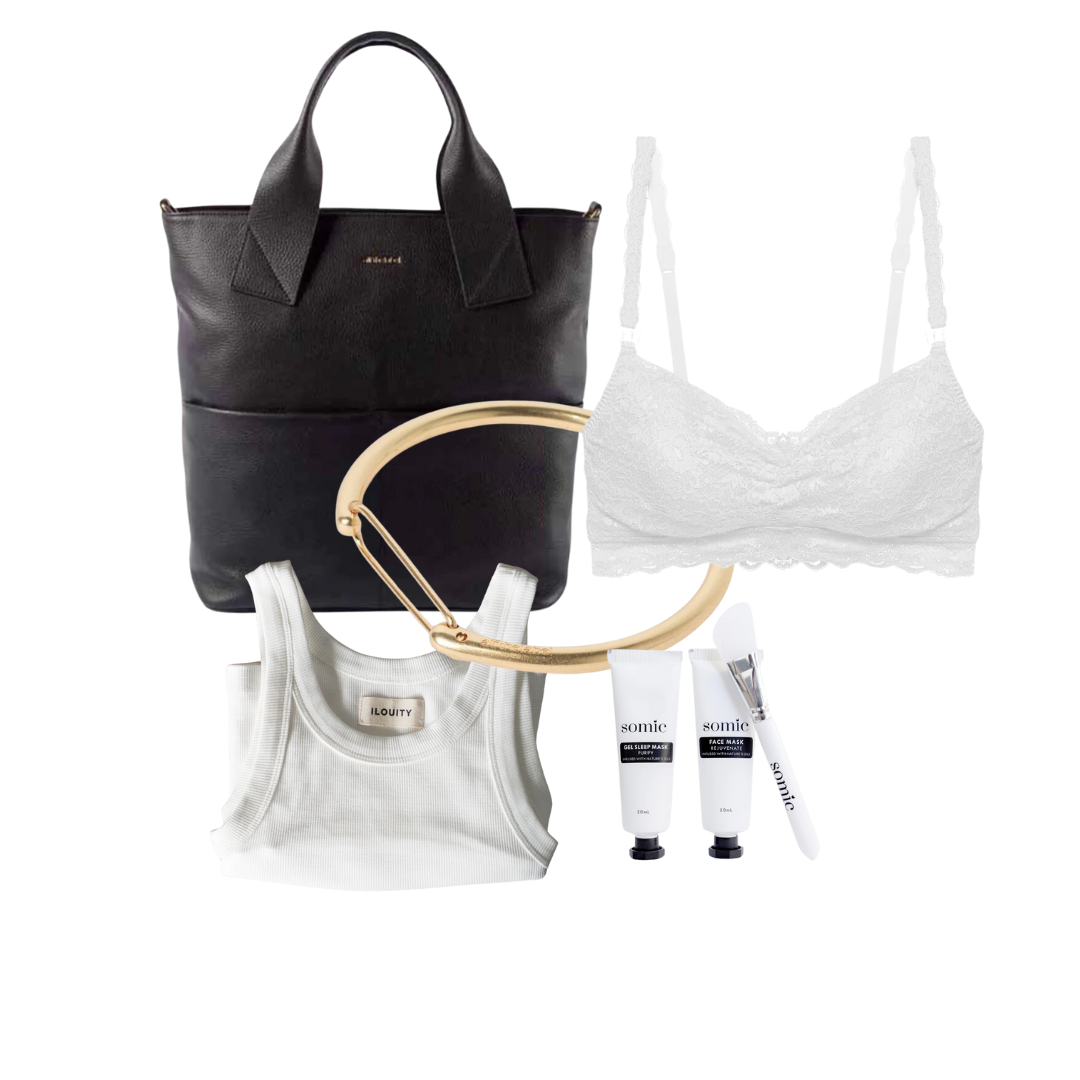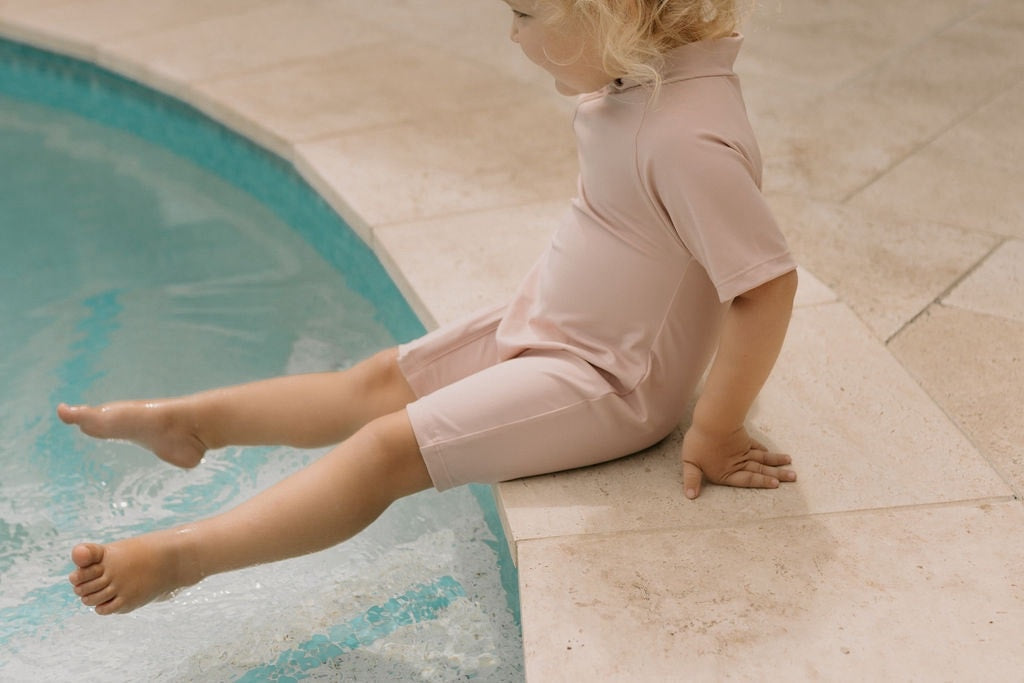PARENTING
In Conversation with Dr Martha Deiros Collado
DR MARTHA | CLINICAL PSYCHOLOGIST
MAY 8TH, 2024
WORDS BY: MICHELLE COLE
IMAGES: DR MARTHA & HOUSE OF BIMBI

PARENTING
In Conversation with
Dr Martha Deiros Collado
DR MARTHA | CLINICAL PSYCHOLOGIST
MAY 8TH, 2024
WORDS BY: MICHELLE COLE
IMAGES: DR MARTHA & HOUSE OF BIMBI
We’re sitting 'Around The Table' with internationally renowned Clinical Psychologist, Dr Martha.
Dr Martha has helped millions of parents with her straightforward and practical advice and strategies.
She’s returning to work having given birth six months ago to her second child and has recently launched her new book How to be the Grown Up: Why Good Parenting Starts With You.
Dr Martha shared with us how being home now having two children has been a beautiful reminder of the importance of applying the support and strategies she shares with others in her own world. “I would say especially as a clinical psychologist and in fact all professionals, it's really easy when you are in professional mode to give advice and see challenges from a neutral perspective when it's not your family, But when you're in it,
"when I'm the mother with my children, I'm not a clinical psychologist - I'm just their mum. And it changes everything because I'm not an outsider to this relationship. I'm in the centre of the relationship”
Tools in the Toolkit
“Sometimes if my husband is here, we would say, right let’s just stop for a minute and imagine that this is not our child. What would I say to somebody else? In this moment. because ‘in it’ I experience what so many other parents experience. I have lots of tools in my rucksack, but sometimes I need to pause, get the bag out, look through everything and be like, oh, yeah, that's helpful. I'll try that.”
No matter how much you know, how qualified you are, anyone with a child will know it really is relentless. It's non stop. This is why having the toolkit of strategies but also
"REMEMBERING TO BE KIND TO YOURSELF IN THOSE MOMENTS IS REALLY KEY. IT’S ACTUALLY ONE OF THE REASONS I WROTE MY NEW BOOK"
HOW TO BE THE GROWN UP: WHY GOOD PARENTING STARTS WITH YOU
How to be the Grown Up: Why Good Parenting Starts With You has been met with international accolade, including being the Sunday Times Number One Best Seller.
Dr Martha smiles, “My third baby! The book for me has come from the work that I've been doing with the community online. I’ve written with them in mind because it's thanks to them that I've been able to write this book.
Writing the book has been an incredible privilege and I've been thinking about the my most asked questions across childhood from 0 to 18. The idea is that it's a bit of a foundation to what the evidence base is around child development and brain development.”
Translating Science into Practical Advice
“The book is based on practical strategies that are effective and why we know they work or why we know other things don't work. There’s the evidence base in the book, but there are also stories. I wanted to do is give people a flavour of this is what it looks like in practise, or what it might look like if you're struggling, or if you try this out.”
One thing that is clear from the book and the rave reviews it has had is the power of it with translating the evidence and that science into an accessible format. Anyone can access it, mums, dads, aunties, the teacher - everyone has access to this understanding. Throughout it the science which underpins effective relationships is highlighted and explained why they are fundamental and that it's not just fluff!
"Anyone can access it, mums, dads, aunties, the teacher - everyone has access to this understanding"
As we know, often support for young families is aimed at mums and ways to support the child. Dads can sometimes be the missing piece. Adam explains, “The idea for the show came about from us wanting to create a space where dads could find some really easy, hands on, practical advice. We knew from our own experiences that often millennial dad’s wanted to be involved but didn’t really know where to start.”
The Dads and the Docs
“It’s a space, particularly for new dads out there , provide some information which is targeted at dads. Right from the immediate moment of when you have a child and it really dawns on you that you have a screaming potato that you've now got to look after!”
Adam smiles as he remembers his own experiences as a dad, “You literally have absolutely no idea what to do as a new dad. For mums out there, there's podcasts and there's books, which is great but
as dads, it can be hard to hear from a male voice and the male perspective.”
LEARNING TOGETHER
“I am always asked what's a good parent, and to me a good parent is somebody who is willing to keep learning about themselves and willing to keep changing, adapting. Accepting the things may be messy temporarily, but still trying to better themselves in that relationship with their child.” Dr Matha explains,
"Regulation is a skill and lots of people, adults and children, find this really difficult. I want you to know that's pretty normal.
The good news is that it’s never too late for you to learn it But you need to commit to doing it, it takes work"
In the book, Dr Martha shows strategies for these using diagrams and practical strategies that families can try out for themselves.
“Regulation is about emotional literacy - understanding the range of emotions we all experience as humans, and finding an appropriate outcome for your emotion, which is not shutting it down. It's allowing it to be and doing something with it.”
WHAT WOULD YOUR AROUND THE TABLE TIP BE FOR FAMILIES?
“Eating at the table, television off, devices off, and sitting around together,” is key shares Kim. “As the kids were growing up, we’d always do a ‘Champion Challenge.’ We used to go around the table and everyone would have a chance to say a ‘Champion Moment’. We’d include Danny in it too, even if he was away travelling for work.
"There's something about sitting around a dinner table and having conversations rather than in front of television or eating on the run"
“The ‘Challenge’ part invited all family members to share something that’s on their mind. They have a choice whether to ask the family for advice, or if they just want to say it out loud and just be heard with it.”
Kim acknowledges that this can be when you've got different sports activities so suggests if it is busy, start with aiming for it at least once a week - have a meal around the table and include ‘Champion Challenge’.
What does this look like in practice?
“An example as an adult may be, I'm starting to feel really angry in this meeting or in this conversation, so I need to create some space for myself. It may be that I go to the toilet, I may get a glass of water, or it could be that I have a strong mint. Something to create a shift for your body.”
Many of us have experienced the overwhelm that a screaming child (or children) can create on our nervous systems, so how can we apply these tools to this situation? “Modelling these regulation strategies to our children is a positive,” explains Dr Martha. “It shows them that emotions are a totally normal part of life, but that our reactions to the emotions needs to be appropriate.”
Dr Martha shares how a tangy Airwaves chewing gum or a strong mint are two of her go-to strategies for bringing herself ‘back to the moment’. “Other strategies are cold water, either on your wrists, or to drink. I also often say tell yourself a mantra to help ground yourself in some way. Mantras can be really helpful because they switch on the thinking part of our brain and they help our brain start to think rather than just feeling emotion in our bodies. Some of the ones I like are ‘This anger I see is not about me’, ‘I can be the calm and the storm’. Those are a couple of mine that I find useful. It could be anything though, anything that works for you.”
‘This anger I see is not about me’
‘I can be the calm and the storm’
The Calm in the Storm
“Once you’re feeling more regulated, then go and meet your child, or go back into your meeting, and think about what is the appropriate response. If it’s with your child, it might be getting a little bit closer to them and supporting them because they're clearly having a struggle in this moment of dysregulation for them. Think about the words you want to say, the actions you want to take, and when you do that - then you're acting with emotional maturity.
Through doing this, we're actually inviting our children to do this more too, modelling it, because we're doing it with them. If we’re losing it and shouting and screaming, we’re giving the message to them that it is acceptable to scream and shout.
"It’s ok to have those times of dysregulation – it’s going to happen! However, modelling the behaviour and response means that we are sharing learning opportunities together"
Online Community
Dr Martha’s online community through her Instagram account has provided support to thousands of parents all over the world. Gaining more and more following during the COVID-19 pandemic when parents all over the world were struggling.
“I set up the account just before COVID happened. I was at the end of my maternity leave and going back to work in the NHS as a clinical psychologist. I decided I'll start this Instagram page to kind of switch my work brain on. And then COVID happened, and people started to ask me questions like ‘How do we explain this to children?’ ‘How do we talk about washing our hands?’ ‘How do we talk about death?
In the NHS my work was in paediatrics, and I've always worked in chronic health and with life shortening conditions, so these questions were my professional life day to day. I was like, I get this stuff…This is the stuff I work with, so it was easy to translate it into actionable strategies to help people. My page grew but it felt it always felt like a co-creation between me and the people who are on my page because every month I will ask, “What would you like me to talk about?”
What’s your one tip for families with self-care?
“Don’t forget to move your body. I like to move my body because it helps me shift stuff. So yoga and running tend to be my staples, but any kind of movement is good. I would say when I am able to run, I'm a much better parent.
However, because I've just had a baby, I'm not running again yet - I'm letting my body heal. Instead, I walk with my baby while my eldest is at school. I try to walk in nature when I can too, because nature always reminds me that change is inevitable. So on good days this grounds me and on less good days, it makes me feel hopeful.
You can learn more about Dr. Martha and join her community below.

HOW TO BE THE GROWN-UP: WHY GOOD PARENTING STARTS WITH YOU










